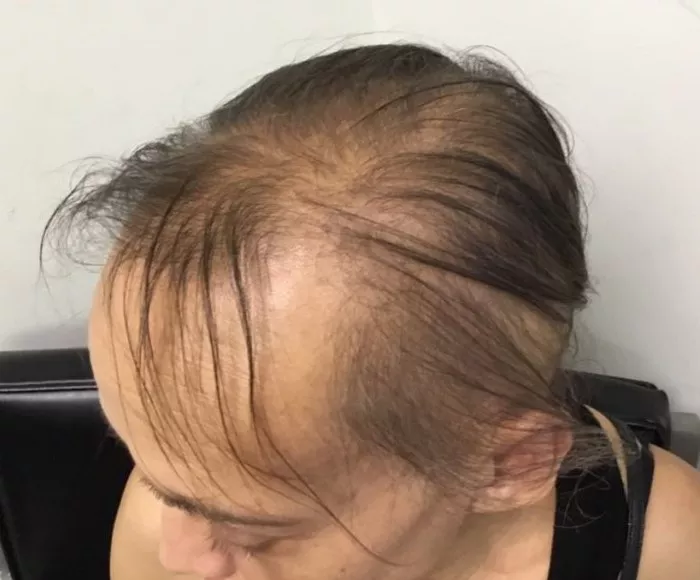In today’s fast-paced world, undergoing anesthesia is not uncommon, whether for a surgical procedure or a medical intervention. While anesthesia plays a vital role in ensuring a patient’s comfort during these procedures, it can sometimes lead to an unexpected and distressing side effect: hair loss. If you’ve experienced hair loss after anesthesia and are wondering how to combat it effectively, this article will provide you with comprehensive insights and strategies to help you regain your luscious locks.
Understand the Link Between Anesthesia and Hair Loss
To address the issue of post-anesthesia hair loss, it’s essential to grasp the connection between the two. Anesthesia, especially general anesthesia, can disrupt your body’s natural processes, including the hair growth cycle. This disruption often results in what is known as telogen effluvium, a condition where hair follicles prematurely enter the resting phase, leading to increased hair shedding.
First and foremost, it’s crucial to realize that anesthesia-induced hair loss is typically temporary. Hair loss occurring due to telogen effluvium is often reversible, and most individuals begin to notice regrowth within a few months. When planning a procedure that involves anesthesia, discuss your concerns with your anesthesiologist. They can provide insights into the specific drugs and techniques used and their potential impact on your hair. This information can help you make an informed decision.
Nurture Your Scalp and Hair
Taking proactive measures to care for your hair and scalp is vital in minimizing post-anesthesia hair loss. Here are several strategies to consider:
1. Opt for a Gentle Shampoo
Switch to a mild, sulfate-free shampoo that is gentle on your hair and scalp. Avoid using harsh chemicals or hot water, as they can further damage your fragile hair.
2. Massage Your Scalp
Regularly massage your scalp to improve blood circulation and stimulate hair follicles. Use natural oils like coconut or jojoba oil for added nourishment.
3. Balanced Diet
Maintaining a balanced diet rich in vitamins, minerals, and proteins is crucial for hair health. Foods like eggs, fish, and leafy greens can promote hair growth and strength.
What are the hair growth supplements?
In some cases, your body might benefit from additional nutritional support to combat hair loss. Consider discussing hair growth supplements with your healthcare provider, as they can recommend options that suit your specific needs.
1. Biotin and Collagen
Biotin and collagen supplements are known for their positive effects on hair health. They can enhance hair strength and promote growth.
2. Consult a Specialist
Before starting any supplement regimen, consult with a dermatologist or trichologist who can assess your hair loss condition and recommend the most suitable supplements.
Manage Stress Levels
Stress is a known trigger for hair loss, and the anxiety associated with undergoing anesthesia can exacerbate the situation. Here’s how you can manage stress effectively:
1. Practice Relaxation Techniques
Engage in relaxation techniques such as deep breathing, meditation, or yoga to reduce stress and anxiety levels.
2. Seek Support
Don’t hesitate to reach out to friends, family, or a therapist for emotional support during your recovery period.
Be Patient and Give Time for Recovery
Remember that recovering from hair loss after anesthesia is a gradual process. Be patient and realistic about your expectations. Hair regrowth takes time, and stressing over it can further impede the process.
Keep a journal to monitor the progress of your hair regrowth. Documenting changes can help you stay positive and informed about the effectiveness of your chosen strategies. Regularly follow up with your healthcare team to ensure your overall health and address any concerns related to hair loss.
See Also: [Revealed!] Does Leaving Hair Wet Cause Hair Loss?
In conclusion
While hair loss after anesthesia can be distressing, it’s essential to understand that it is often temporary and manageable. By taking proactive steps to care for your hair and seeking professional guidance, you can minimize the impact and look forward to regaining your beautiful locks. Remember, patience and consistency are key on your journey to stopping hair loss after anesthesia.


